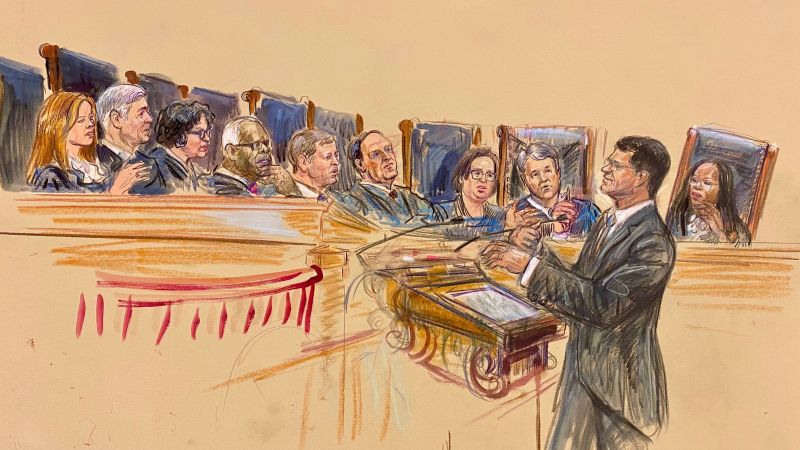In a recent Supreme Court session, the Trump administration presented a request to eliminate birthright citizenship, claiming it as a “modest” endeavor. However, the ensuing two-and-a-half-hour debate shed light on the far-reaching implications of President Trump’s proposal. Justice Sonia Sotomayor expressed concerns about potentially rendering children stateless without citizenship papers, while several justices across ideological lines hesitated to immediately lift court orders restraining the enforcement of the executive order. Solicitor General D. John Sauer acknowledged the novelty of the legal argument behind Trump’s order, which aims to deny citizenship to children born to undocumented parents or those on temporary visas.
The discussion also delved into the broader context of curbing executive power and the issue of nationwide injunctions from lower court judges. Justices highlighted the importance of swift resolution while balancing the constitutional aspects of the case. The session underscored the ongoing tension between different branches of government and the significance of upholding the 14th Amendment’s guarantee of citizenship. The debate also touched on practical implications, such as the administrative challenges hospitals and states might face in implementing the order.
Overall, the Supreme Court’s consideration of the birthright citizenship issue reflects a complex interplay of legal, political, and practical factors, with implications that extend beyond the immediate case at hand. The session highlighted the delicate balance between executive authority, judicial oversight, and the fundamental principles enshrined in the Constitution.

